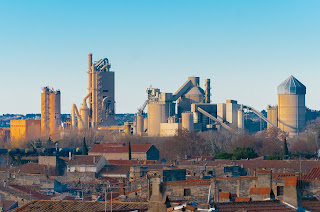Specialty cements are a type of cement that is specially formulated to meet specific needs and applications. These cements are used in a variety of construction projects and are designed to provide unique properties such as increased strength, improved durability, and increased resistance to certain environmental conditions.
One type of specialty cement is high-alumina cement. This type of cement is made by heating a mixture of bauxite and limestone at high temperatures. The resulting material is a cement that has a high alumina content, which gives it increased strength and resistance to high temperatures. High-alumina cement is often used in the construction of refineries, power plants, and other industrial facilities that are exposed to high temperatures.
Another type of specialty cement is sulfate-resistant cement. This type of cement is formulated to resist the damaging effects of sulfates, which are commonly found in soil and groundwater. Sulfates can cause concrete to expand and crack, and can lead to the deterioration of concrete structures over time. Sulfate-resistant cement is often used in the construction of foundations, retaining walls, and other structures that are built in areas with high sulfate levels.
Another specialty cement is low heat cement. This type of cement is formulated to generate less heat during the process of hardening. This is important for large projects, such as dams and large scale building, where the temperature increase caused by the exothermic reaction could cause cracking. This type of cement is also used in mass concrete projects such as pavements, and large scale foundations.
A type of specialty cement known as rapid-hardening cement is also available. This type of cement is formulated to harden quickly, which allows construction to proceed at a faster pace. Rapid-hardening cement is often used in the construction of roads and bridges, as well as in repair and maintenance projects.
A further type of specialty cement is oil well cement, which is specially formulated to withstand the high pressures and temperatures found in oil and gas wells. This type of cement is used to seal the space between the well bore and the surrounding rock, to prevent oil and gas from escaping. Oil well cement must also be able to withstand the corrosive effects of the chemicals that are present in oil and gas wells.
Lastly, another type of specialty cement is colored cement. This type of cement is formulated to produce a variety of colors, and is often used in decorative concrete projects, such as stamped concrete and colored concrete. Colored cement can be used to create a variety of patterns and designs, and is often used to create a unique look for driveways, patios, and other outdoor surfaces.
In conclusion, specialty cements are a type of cement that is specially formulated to meet specific needs and applications. These cements are used in a variety of construction projects and are designed to provide unique properties such as increased strength, improved durability, and increased resistance to certain environmental conditions. High-alumina cement, sulfate-resistant cement, low heat cement, rapid-hardening cement, oil well cement and colored cement are some of the examples of specialty cements.
News from all over on Cement Markets, Cement Marketing, Sales Consulting, Marketing Consulting for the Cement Marketing Consultant, Cement Market Consultant.
Sunday, January 29, 2023
A Brief On Specialty Cements
Subscribe to:
Post Comments (Atom)

No comments:
Post a Comment